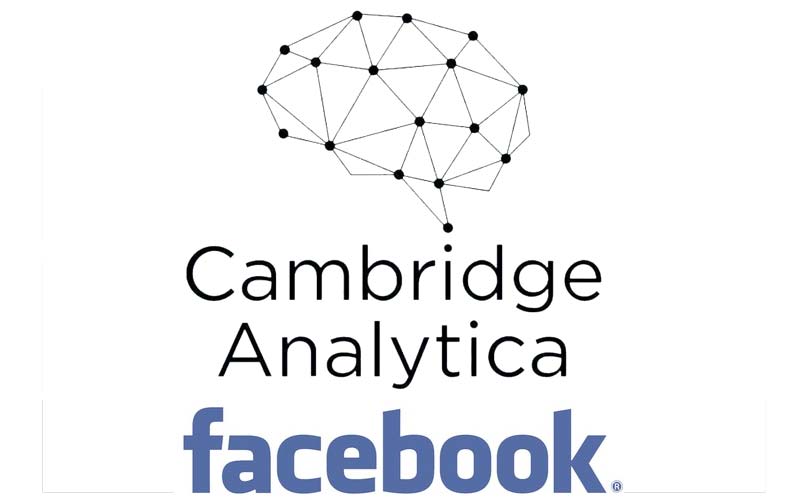In a significant development for online privacy, the High Court dismissed Facebook’s challenge against a class action lawsuit brought by users affected by the Cambridge Analytica scandal. The lawsuit alleges that Facebook breached its users’ privacy by allowing the harvesting of personal data by the political consultancy firm, Cambridge Analytica.
Cambridge Analytica Privacy Breach
The Cambridge Analytica scandal, that broke in 2018, revealed the firm obtained data on millions of Facebook users without their consent. The data was collected through a third-party app that asked users to take a personality quiz, but also harvested data from their friends without their knowledge. This data was then used to create targeted political ads during the 2016 US presidential election, as well as the UK’s Brexit referendum.
The scandal brought to light the massive amounts of data that Facebook collects from its users, and the ways in which that data can be used without their knowledge or consent. It also raised concerns about the role of social media in political campaigns, and the potential for foreign interference in democratic processes.
Facebook has faced numerous investigations and lawsuits in the wake of that scandal, including a $5 billion fine from the US Federal Trade Commission for violating user privacy. However, the class action lawsuit brought by Australian users affected by the breach is one of the largest and most significant legal challenges Facebook has faced.
The lawsuit filed in 2018 alleges Facebook breached the Privacy Act and the Australian Consumer Law by failing to protect users’ personal information. It seeks compensation for the harm caused by the breach, as well as an order requiring Facebook to implement better data protection measures.

Facebook Challenge
Facebook argued that the case should be dismissed on the grounds that the users affected by the breach had not suffered any actual harm, and that the company had not breached any Australian laws.
However, the High Court disagreed, ruling that the case could proceed to trial.
The dismissal of Facebook’s challenge is a significant victory for the Australian users affected by the Cambridge Analytica breach, and for advocates of online privacy more broadly.
It sends a message to tech companies that they can be held accountable for their handling of user data, and that they must take steps to protect their users’ privacy.
However, the case also raises questions about the limitations of legal action in protecting user privacy. The class action lawsuit is only able to provide compensation to those who have been directly affected by the breach, and cannot address the wider systemic issues that allowed the breach to occur in the first place.
Facebook Changes
There is also the question of whether Facebook will actually change its practices in response to the lawsuit. The company has already faced numerous investigations and fines for its handling of user data, but has been criticized for not doing enough to address the underlying issues. Some critics argue that the only way to truly protect user privacy is through stronger regulation of tech companies.
The Cambridge Analytica scandal was a wake-up call for many people about the ways in which their personal data can be used without their consent. It highlighted the need for stronger privacy protections, and for greater transparency and accountability from tech companies.
Since the scandal broke, Facebook has made some changes to its data protection practices, including tightening its rules around third-party apps and giving users more control over their data. Critics argue these changes do not go far enough, and that the company still has a long way to go to regain user trust.
Outcome
Analysts say the dismissal of Facebook’s challenge against the Cambridge Analytica class action lawsuit is an important step in holding tech companies accountable for their handling of user data. It sends a message that privacy violations will not be tolerated, and that users have the right to seek compensation for harm caused by breaches.
However, it is only one piece of a much larger puzzle.
Government Regulation
The need for stronger regulation of tech companies is a view held by many experts and policymakers around the world. For example, in the United States, lawmakers proposed a number of bills aimed at regulating tech companies and protecting user privacy, including the proposed “ACCESS Act” that would give users more control over their data, and the “Algorithmic Accountability Act” that would require companies to assess the impact of their algorithms on consumers.
In Europe, the General Data Protection Regulation (GDPR) has strengthened privacy protections for users and imposed significant fines on companies that violate those protections. Many privacy advocates and consumer rights groups also argue that stronger regulation is necessary to ensure tech companies are held accountable for their handling of user data, and to prevent future breaches like the Cambridge Analytica scandal.
Personal Privacy
As the world becomes increasingly digitized, people want their privacy protected, and to ensure their data is not used against them. The dismissal of Facebook’s challenge is one step in that direction, but only time will tell if it is a step in the right direction.
Key Takeaways:
- The Australian High Court dismissed Facebook’s challenge against a class action lawsuit brought by users affected by the Cambridge Analytica scandal.
- The lawsuit alleges that Facebook breached its users’ privacy by allowing the harvesting of personal data by political consultancy firm, Cambridge Analytica.
- The dismissal of the challenge means that the lawsuit can now proceed to trial.
- This decision has significant implications for online privacy protection measures, as it may set a precedent for holding tech companies accountable for their handling of user data.



